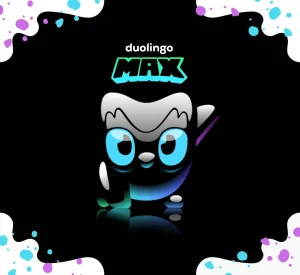In today’s fast-paced business world, companies always look for ways to improve their training programs. “Is custom eLearning worth the investment?” is a question that frequently comes up in boardroom conversations. The answer isn’t always straightforward because I’ve assisted hundreds of businesses in changing their training strategies. Still, for most organizations, the benefits far outweigh the initial costs.
Grabbing off-the-shelf courses is tempting when faced with tight budgets and pressing deadlines. They’re quick, they’re there, and they seem cost-effective at first glance. But are they giving you the best bang for your buck in the long run?
What is Custom eLearning?

Training materials tailored to your company’s particular requirements, objectives, and audience are known as custom eLearning. Instead of generic off-the-shelf solutions, custom eLearning is made to fit your business’s unique challenges, procedures, culture, and brand. The custom-tailored suit fits flawlessly, reflects your style, and frequently lasts much longer than the off-the-rack option, even though it may look good and cost less upfront.
Custom eLearning can include various formats:
- Interactive modules.
- Scenario-based learning.
- Simulations.
- Microlearning.
- Video-based content.
- Mobile-friendly courses.
- Gamified learning experiences.
I remember working with a healthcare provider using generic compliance training for years. Their employees would groan when training time came around. When we created custom scenarios based on real situations their staff encountered daily, completion rates jumped by 78%, and more importantly, the actual implementation of proper protocols increased dramatically.
Why Invest in Custom eLearning?
Strengthening Brand Identity and Cultural Alignment
Through customised eLearning, each learning event integrates your company’s language, culture, and values. This unity ensures that the training has no disconnected connection to day-to-day operations and promotes greater organisational identification.
If your training material includes real-world examples, industry jargon, and even images that are exactly like your company’s logo, students will instantly relate to it. This identification immediately promotes greater participation and makes training relatable rather than generic.
For example, customer service representatives who practice handling complaints through scenarios featuring your actual products and using your company’s preferred communication style will transition those skills to fundamental customer interactions much more naturally.
Provides a Personalized Training Pathway
Custom eLearning allows you to design unique learning pathways according to departments, roles, experience levels, or personal preferences. Because of this personalisation, staff members aren’t wasting time on pointless material. An experienced salesperson does not require the same training as a new accounting hire. Everyone is guaranteed to receive precisely what they need—neither more nor less—through customised pathways. You can use adaptive learning with sophisticated learning platforms to create an even more tailored experience by modifying the content’s difficulty level according to learner performance.
Optimizes Content for Maximum Relevance
Custom eLearning eliminates this translation step by directly addressing your company’s unique processes, tools, and challenges. When I helped a manufacturing company develop custom safety training, we incorporated footage from their actual factory floor and created interactive simulations of their specific machinery. The impact was immediate – workplace incidents decreased by 34% in the first quarter after implementation, compared to the minimal improvements they saw with previous generic safety videos.
This direct relevance means:
- Faster application of learning.
- Reduced time spent clarifying how general principles apply to specific situations.
- Higher retention of critical information.
- More confident in the implementation of new skills.
Ensures Brand Consistency

When training materials perfectly align with your brand guidelines, your company’s identity is reinforced in every interaction. Maintaining your brand’s voice, values, and messaging across all learning experiences is part of this consistency, beyond simply using the appropriate colours and logos. For companies with customer-facing employees, this brand consistency in training directly translates to more consistent customer experiences. When employees learn customer service through materials that embody your brand promise, they naturally deliver service that reflects those values.
Improves Learning Effectiveness
People learn best when they connect new information to existing knowledge and real-world applications. Custom eLearning automatically creates these connections by situating learning within familiar contexts.
The learning science is precise on this point – contextualized learning leads to:
- Higher engagement rates.
- Improved knowledge retention.
- Better transfer of skills to on-the-job performance.
- Increased learner confidence.
Cost-Effective in the Long Run
While custom eLearning requires a larger upfront investment than off-the-shelf solutions, the long-term financial benefits often make it the more economical choice:
- No recurring licensing fees for content you don’t entirely need.
- Higher completion rates mean a better return on your training investment.
- Improved job performance delivers tangible business results.
- Content can be updated incrementally rather than replaced entirely.
- Reduced need for additional clarification or supplemental training.
The truth about off-the-shelf courses is that companies often pay for content they never use while still needing to create supplemental materials to fill the gaps. This piecemeal approach usually costs more than creating comprehensive custom solutions.
Real-time Feedback and Continuous Improvement
Custom eLearning platforms can be designed to collect specific performance data and feedback that directly informs your business decisions. Rather than generic completion metrics, you can track which concepts employees struggle with and which skills need reinforcement. This granular data allows targeted improvements to your training content and related business processes. If 80% of learners struggle with a particular procedure in your simulation, that might also signal a need to simplify that procedure in real life.
Future-Proofing Learning With Innovation
The training landscape is constantly evolving with new technologies and methodologies. Custom eLearning gives you the flexibility to incorporate cutting-edge approaches that align with your specific needs:
- AR/VR training for high-risk or complex physical tasks.
- AI-driven adaptive learning paths.
- Microlearning for just-in-time performance support.
- Social learning components that build on your existing company culture.
Off-the-shelf solutions are often slow to adopt new technologies or implement them in ways that may not align with your infrastructure or needs.
Long-Term Cost Efficiency and Full Ownership
When you invest in custom eLearning, you own the content outright. This ownership means:
- No ongoing licensing costs that increase as you add more learners.
- The ability to repurpose content across multiple platforms.
- Freedom to update and modify content as your business evolves.
- Complete control over accessibility and distribution.
I worked with a fast-growing tech company that initially chose off-the-shelf courses for its customer support team. As they added new team members, their monthly licensing costs kept climbing. When they switched to custom content, their break-even point came after just 14 months, and they’ve been realizing cost savings ever since.
Why is it Worth It to Invest Heavily in Your Education Training?

The question isn’t really whether you can afford custom eLearning – it’s whether you can afford not to invest in training that works.
Consider these broader business impacts:
- Faster onboarding: Custom training that reflects job responsibilities makes new hires more productive.
- Reduced errors: Training that addresses your specific processes and common pitfalls directly impacts error rates.
- Increased employee satisfaction: Relevant, engaging training shows employees you’re invested in their success.
- Competitive advantage: Well-trained employees deliver better customer experiences, creating market differentiation.
- Adaptability to change: Custom content can be quickly updated to reflect market changes or new compliance requirements.
The ROI equation for custom eLearning isn’t just about training costs – it’s about the business results that practical training delivers.
Conclusion
Does investing in custom eLearning make sense? The answer is unquestionably yes for companies serious about developing their workforce, achieving operational excellence, and creating a strong culture. Off-the-shelf courses may appear quick and inexpensive, but they frequently provide generic experiences that don’t engage students or solve your unique business problems. Targeted, brand-aligned learning experiences produced by custom eLearning produce quantifiable business outcomes. The initial investment in custom content pays dividends through increased engagement, better knowledge retention, improved job performance, and, ultimately, more substantial business outcomes.
ALSO READ:
FAQs
Development timelines vary by scope and complexity but typically range from 6 to 12 weeks for a comprehensive program. Most providers can leverage phased approaches to roll out primary content more quickly.
A: Absolutely! One of the significant advantages of custom content is that you own it and can update it as needed. Most custom eLearning is designed with future modifications in mind.
A: ROI can be measured through various metrics, including completion rates, assessment scores, on-the-job performance improvements, error reduction, customer satisfaction increases, and reduced time to competency for new hires.
A: While large organizations were early adopters, custom eLearning is now accessible to businesses of all sizes. Many providers offer scalable solutions that can grow with your
A: Custom eLearning should be developed to industry standards (like SCORM or xAPI) to ensure compatibility with most learning management systems.




